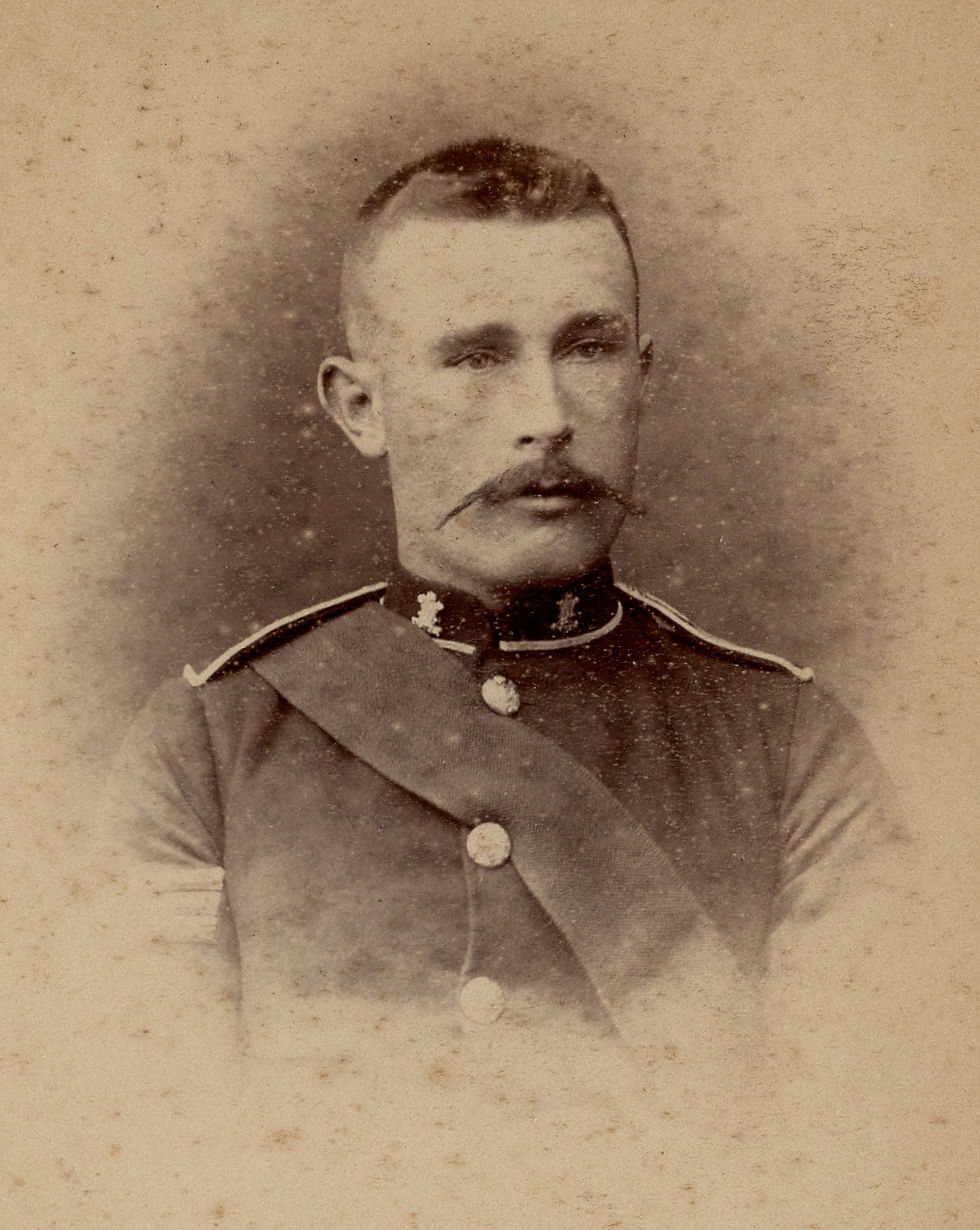A silver shooting medal to Herbert John Snelling Ashdown, Leinster Regiment
- Stephen Callaghan
- Nov 10, 2023
- 3 min read
Updated: May 4, 2025

Recently a shooting medal appeared online, the medal had been awarded for coming second place and given to Colour Sergeant H Ashdown, 1st Battalion Leinster Regt. The surname was familiar due to an image on the Imperial War Museum’s website of a Captain Ashdown. Some brief research quickly confirmed these two men as being one in the same person. Motivated to know more about this ranker who was commissioned from the ranks, some further research uncovering the following brief biography of Captain Asdown.
Herbert was born in Mistley, Essex in 1880. He was the son of Joseph and Betsy Ashdown. The 1881 census records Joseph, an accountant, with Betsy, and their children Alice, Ethel, Jessie and Herbert.
Herbert enlisted in the Leinster Regiment around 1893/1894 as a 14-year-old boy soldier. During the Second Anglo Boer War (1899-1902) he saw active service in South Africa with the 2nd Battalion, and for his service received the Queen’s South Africa medal with the clasps “Cape Colony”, “Orange Free State”, “Transvaal” and “South Africa 1902”.

In December 1908 Herbert married Minnie Louise Witherden. The 1911 census record Colour Sergeant Ashdown residing in the married quarters at New Granby Barracks, Devonport. It was while based in Devonport that Ashdown came second in the Western Championship a silver medal. The match consisted of various trying of shooting and Colour Sergeant Ashdown scored 160 into, the first place shooter, P.O. Jones of H.M.S. Vivid, scoring 162.
During the Great War, Colour Sergeant Ashdown received a commission as a Second Lieutenant. He served with the 1st Battalion as a machine gun officer. He was severely wounded in February 1915, while fixing a fed issue with a machine gun while trying to stop at German advance. Despite his wounds he remained at his post.

Later in the war Ashdown was transferred to the Cheshire Regiment and later became an adjutant to the 37th Labour group headquarters. He retired from the army with the rank of Captain. For his service during the war, he received a 1914-15 Star, British War medal and Victory medal.
The 1939 Register records Herbert and Minnie living at 10 Langham Gardens, Wembley. He was noted as being a factory gateman. During the Second World War he was a member of the Home Guard.
Captain Ashdown died on 10 August 1954, he was interred in Alperton Cemetery, Wembley, London. His obituary appeared in the Harrow Observer on 26 August 1954.
“CAPT. H. J. S. ASHDOWN
Capt. Herbert John S. Ashdown, who served as a ranker, n.c.o. and officer with the Regular Army for 34 years, died at his home at 10, Langham gardens, North Wembley, on Thursday at the age of 74. He had been a resident of the borough for more than 20 years. The funeral was at Alperton cemetery on Tuesday.
Capt. Ashdown was on 14 when he joined the Army as a band boy. He fought in the Boer War. In 1899 he was appointed a bandsman and he became a band sergeant in 1905. In 1907 he qualified as a musketry and machine-gun instructor and rose to the rank of quarter-master sergeant. At the outbreak of the first world war he was commissioned in Leinster Regiment as a machine-gun officer. He was on active service for most of the time and in 1916 became a temporary captain and adjutant of the 18th Cheshire Regiment. In 1917 his captain’s rank was confirmed and he returned to the Leinster. Later he became adjutant to the 37th Labour Group headquarters.
After the war he took over as garrison adjutant at Southampton, and in April, 1919, he was acting staff captain for demobilisation. He retired soon after this. Capt. Ashdown was in the Home Guard during the second world war. He also served as a special constable, rising to the rank of inspector. Until a few weeks before his death he took an active interest in ex-Servicemen’s organizations.”





Comments